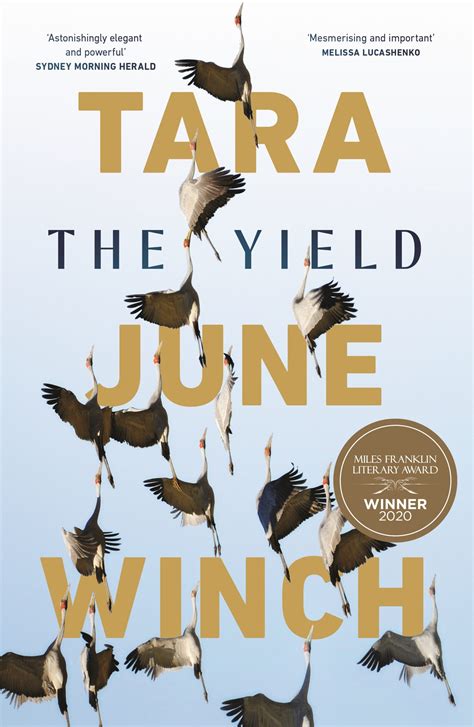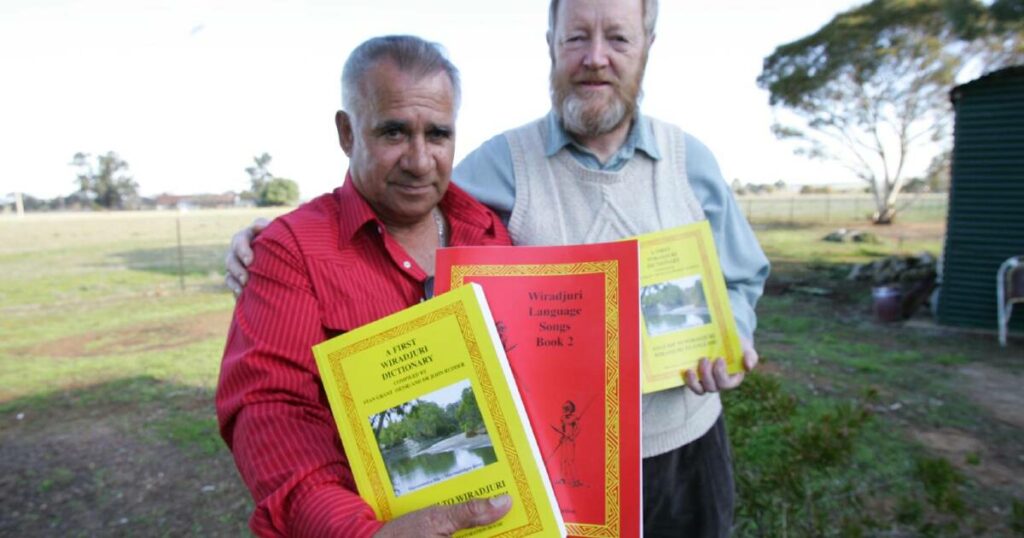The Yield, Tara June Winch, Australia, 2019
Yield (baayanha): … the things you give to, the movement, the space between things. It’s also the action made by Baiame (God figure) because sorrow, old age and pain bend and yield (…) a bend in humiliation just like we bend at our knees and bow our heads. Bend, yield.

I liked the way Winch has used three story strands to tell her story – separate strands, yet still woven together. Albert Gondiwindi’s dictionary (based on the dictionary work of Dr John Rudder and Stan Grant senior) is, for me, the centre of this novel, focusing not only on the Wiradjuri words and their meanings but also on their connection to culture and stories.

The second strand – the Reverend Ferdinand Greenleaf’s letter to the British Society of Ethnography – is beautifully crafted, and gives a picture of a kind man who wants to do good, not for the recognition but simply because it is the right thing to do. The fact that he is German – Ferdinand Grünblatt – seems somewhat contrived and therefore unrealistic, even though I understand that Winch possibly wanted to make a comparison between the sufferings of the First Nations’ people and the plight of German immigrants in Australia during WWI. That a twenty-first century assessment of Greenleaf’s actions should later relegate him to the negative side of European/Aboriginal Australian history feels completely wrong.
The third strand, which holds everything together, is actually much weaker than the other two strands. It centres around a part-Aboriginal woman August, who has been living in England for ten years, and who returns to Australia for her grandfather’s funeral. Her grandfather, Albert, was responsible for her upbringing when both her parents ended up in gaol. Winch has created a fictional town (Massacre Plains) on the banks of a fictional river (Murrumby), somewhere in the northern part of the central west (NSW). When August arrives home she discovers that the place she has always called home is about to be repossessed by a mining company.

I do not disagree that The Yield is an important book (it won the Miles Franklin Literary Award 2020), and like Pemulway and Dark Emu, it is making an attempt to pull the unknown, hidden side of Australia’s history into the spotlight. I admire Winch for what she set out to achieve and what she did achieve; however, I feel that she has tried to juggle too many issues – Aboriginal imprisonment, alcohol and drug abuse, domestic abuse, environmental abuse, fear and hatred (past and present), Australian apartheid…, causing the final pages of August’s story to descend into a sentimental mire of confusion and unreality.
It is difficult to get a grasp on August as a character, and the majority of the more important members of the Gondiwindi family (or tribe) remain just a few centimetres out of reach: they never really develop into real people with real feelings. Also characters swing between being respected, well-educated members of White society and being completely destitute. I feel that the story could have gained from better and clearer characterisation.
Nevertheless, the Dictionary and the Reverend’s letter definitely propel the book to an award level, and even though August’s story did not appeal to me, Winch has managed to shed light on many things that need to be out in the open and readily available for discussion.